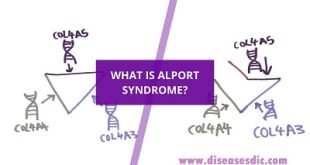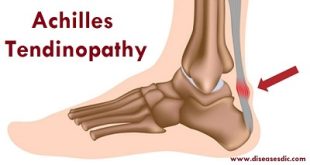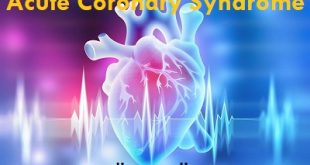Definition
Acute liver failure occurs when many cells in the liver die in a short period of time or the liver becomes damaged. Pediatric liver failure is not as common as liver failure in adults and liver failure in children is typically very rare. If the features occur in individuals with prior hepatic disease, it is considered acute-on-chronic liver failure.
The most common causes are infections (e.g., viral hepatitis) and drug toxicity (e.g., acetaminophen ingestion). Hepatic encephalopathy may be accompanied by jaundice and nonspecific symptoms such as nausea, vomiting, and fatigue. The diagnosis is confirmed by identifying an elevation of hepatic enzymes and an altered coagulation panel in patients with encephalopathy.
Clinicians should maintain a high index of suspicion and aim to confirm the diagnosis as quickly as possible in order to start management early. Patients with ALF are usually critically ill and require admission to a critical care unit for extensive supportive treatment. The prognosis is poor, and most patients require urgent liver transplantation as definitive treatment.
Pathophysiology of acute liver failure
The exact pathophysiology of ALF depends on the underlying aetiology leading to liver dysfunction. Most cases of ALF are associated with a direct insult to the liver leading to massive hepatocyte necrosis (death of tissue) and/or apoptosis (programmed cell death), which prevents the liver from carrying out its normal function.
As the condition progresses it can lead to a hyperdynamic circulatory state with low systemic vascular resistance due to a profound inflammatory response. Collectively, this causes poor peripheral perfusion and multi-organ failure. Patients also develop significant metabolic derangements (e.g. hypoglycaemia, electrolyte derangement) and are at increased risk of infection.
Marked cerebral oedema occurs, which is a major cause of morbidity and mortality in ALF. This is thought to be due to hyperammonaemia causing cytotoxic oedema and increased cerebral blood flow that disrupts cerebral autoregulation.
Epidemiology
In developed nations, acute liver failure has an estimated incidence of fewer than 10 cases per million people per year. Acetaminophen (paracetamol) overdoses are prominent causes of fulminant hepatic failure in Europe and, in particular, Great Britain. Hepatitis delta virus (HDV) superinfection is much more common in developing countries than in the United States because of the high rate of chronic hepatitis B virus (HBV) infection. Hepatitis E virus (HEV) is associated with a high incidence of fulminant hepatic failure in women who are pregnant and is of concern in pregnant patients living in or traveling through endemic areas. These regions include, but are not limited to, Mexico and Central America, India and the subcontinent, and the Middle East.
Causes of acute liver failure
The exact cause of acute liver failure may be unknown, or it may be caused by any of the following:
Certain medicines, herbal supplements, and illegal drugs can cause liver damage. An acetaminophen overdose may cause acute liver failure. An overdose can happen by taking too much acetaminophen at one time or overtime. Other medicines that can cause liver failure include antiseizure medicines and certain antibiotics. Illegal drugs, such as cocaine, can also cause liver damage.
A viral infection may cause hepatitis. Hepatitis causes your liver to swell. Hepatitis can lead to acute liver failure.
Autoimmune diseases may cause your body to attack and damage your liver cells.
Health conditions, such as Wilson disease or Reye syndrome, may cause acute liver failure. Heart failure, heatstroke, and blood vessel diseases such as Budd-Chiari syndrome, can also cause acute liver failure.
Pregnancy-related conditions, such as fatty liver and HELLP syndrome, may cause acute liver failure.
Cancer metastasis is cancer that has spread and reached your liver from other parts of your body.
Risk factors
You are at risk for acute liver failure if you:
- Take too much acetaminophen
- Have certain diseases or infections, such as hepatitis, Wilson disease, and herpes simplex virus
- Drink a lot of alcohol
- Have poor blood flow to the liver
Complications
Abnormal bleeding: The liver plays an important role in producing proteins, called blood clotting factors, which help the blood to clot. If the liver isn’t working properly, these may not be produced which can lead to bleeding in any part of the body. Measuring the rate of blood clotting is a useful way to assess whether the liver is getting better or worse. Blood clotting may only be treated if there is bleeding or your child needs any procedures that may put him/her at risk of bleeding. Blood clotting factors may need to be given to treat this.
Infection: The liver plays an important part in fighting infection. Acute liver failure makes it more likely for a child to get an infection. Your child may be given intravenous (through the vein) antibiotics and anti-fungal medicines to prevent infection. Any specific infection identified will be treated.
Encephalopathy: Encephalopathy can occur because the liver is unable to clear toxins from the blood properly. This can lead to irritation and swelling of the brain. If there is a decrease in your child’s level of consciousness, leading to drowsiness, irritability, or behavior which is out of character, they may need to be cared for in an intensive care. A ventilator (breathing machine) may need to be used to allow a child to completely rest and enable additional treatment to be given.
Other treatments such as a form of dialysis may also be needed to try and rid the body of toxins.
Encephalopathy can be very difficult to assess and it can change from one minute to the next. For example, one minute a young child can be very sleepy and the next minute they may be sitting up in bed drinking a bottle.
Poor Kidney Function: When the liver fails the kidneys may not work as well as they should. In this case children are given fluids via a drip and a medicine to help them pass urine. They may also need a urinary catheter to accurately measure their urine output. Some children may need help from kidney dialysis for a short time.
Symptoms of acute liver failure
Signs and symptoms of acute liver failure may include:
- Yellowing of your skin and eyeballs (jaundice)
- Pain in your upper right abdomen
- Abdominal swelling (ascites)
- Nausea
- Vomiting
- A general sense of feeling unwell (malaise)
- Disorientation or confusion
- Sleepiness
- Breath may have a musty or sweet odor
- Tremors
Diagnosis and test
The following are the most common ways to diagnose acute liver failure:
Blood Tests: These will determine how well the liver is functioning. A prothrombin time test, which measures how long it takes blood to clot, is the most common exam. Other tests may measure levels of bilirubin, albumin, lactate (lactic acid), and phosphate.
Imaging Tests: This will usually include an ultrasound, which uses soundwaves to form an image of the liver so that doctors can detect liver damage. Other tests may include a computerized tomography (CT) scan and magnetic resonance imaging (MRI). Both help doctors look for other causes of acute liver failure when the ultrasound is negative.
Liver Biopsy: This is a surgical procedure that removes a tiny portion of liver tissue so that doctors can examine it under a microscope to determine what is wrong.
In addition to these tests, doctors may also ask about recent symptoms, medications, and factors that put the patient at risk of viral hepatitis, such as intravenous drug use and tattoos.
Treatment
Because ALF often involves rapid mental deterioration and the potential for multiorgan failure, patients should be managed in a dedicated Intensive Liver Therapy Unit (ILTU). For patients admitted in a non-transplant centre, the possibility of rapid progression of ALF makes early consultation with a transplant facility critical. Accordingly, plans for transfer to a transplant centre should begin in patients with any sort of abnormal mentation. Early institution of antidotes or specific antiviral therapy, liver dialysis and plasma purification techniques may prevent the need for liver transplantation and reduce the likelihood of a poor outcome after transplant.
Modes of treatment available
Medical management: This should happen in a dedicated Intensive Liver Therapy Unit (ILTU), providing supportive care to the liver and organs which may get damaged in ALF, especially the brain. Specific antidotes to counter the cause of liver insult are available for select cases like paracetamol poisoning, Viral hepatitis B, and autoimmune hepatitis.
Plasma purification techniques: Once ALF sets in, there is a spillover of inflammatory mediators into blood plasma which may damage other organ systems. Therapeutic plasma exchange and plasmapheresis are helpful in certain situations.
Liver dialysis: MARS (Molecular adsorption in a recirculating system) dialysis serves as a stabilization technique as well as a bridge to transplant until a new liver is available from the dead organ donation pool.
Regenerative Hepatology: The liver has immense power to regenerate and during ALF, the bone marrow supplies stem cells to the ailing liver to recuperate. These stem cells reach the liver from the marrow and transform themselves into liver cells. There are special regenerative medicines/techniques to facilitate this.
Liver transplantation: If medical management fails or when there are clear pointers in lab tests and clinical features which would tell us that medical management won’t be efficacious, then urgent liver transplantation is the way to go.
Medications
When acute liver failure is caused by ingesting toxic substances, acetaminophen overdose, or viral hepatitis, it can often be treated through medication. These include the following:
Activated Charcoal: This is carbon that has been exposed to high temperatures, which increases its surface area and makes it effective at absorbing toxins.
Antiviral Therapy: This encompasses a variety of medications that will slow down the effects of the hepatitis virus. They may include entecavir (Baraclude), tenofovir (Viread), lamivudine (Epivir), adefovir (Hepsera), and telbivudine (Tyzeka).
N-Acetyl Cysteine: This is a derivative of amino acid that is highly effective in treating the effects of acetaminophen overdoses, as well as mushroom poisoning.
Penicillin: When given in high doses, this common antibiotic can combat toxins such as mushrooms.
Prevention of acute liver failure
You can prevent some of the underlying causes of acute liver failure. Make sure you:
- Always follow the directions on the label when taking a medicine that has acetaminophen. Be very careful not to mix medicines that contain acetaminophen. Talk with your pharmacist or healthcare provider if you have questions.
- Stop drinking alcohol if you have a liver problem.
- Talk with your healthcare provider about the hepatitis A and B vaccines. You may need these if you are at risk for coming into contact with the blood or feces of a person who has viral hepatitis. If you visit other countries, particularly developing nations, don’t drink local tap water.
 Diseases Treatments Dictionary This is complete solution to read all diseases treatments Which covers Prevention, Causes, Symptoms, Medical Terms, Drugs, Prescription, Natural Remedies with cures and Treatments. Most of the common diseases were listed in names, split with categories.
Diseases Treatments Dictionary This is complete solution to read all diseases treatments Which covers Prevention, Causes, Symptoms, Medical Terms, Drugs, Prescription, Natural Remedies with cures and Treatments. Most of the common diseases were listed in names, split with categories.







